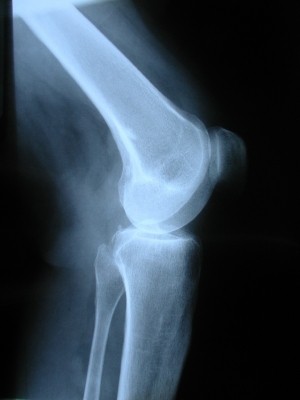222 health claim winners set for EU law books…and 2000 losers

While the list contains 222 claim winners including vitamins, minerals, omega-3s and fibre, the 2000 rejections for the likes of soy and glucosamine, has left industry groups far from happy and turning their attention to lobbying European Parliamentarians for late amendments. Well, most…
Professor David P Richardson, UK Council for Responsible Nutrition (CRN):
“Consumers should be able to make choices based on clear and accurate information and to have confidence in the scientific and regulatory processes used to support health claims.”
“However, the European Food Safety Authority (EFSA) requirement for conclusive evidence of cause and effect for a diet and health relationship represents an aspirational scientific standard that most health claims and indeed most public health recommendations cannot achieve. The current approaches could stifle rather than stimulate research and product innovation.”
Peter van Doorn, chairman, European Federation of Associations of Health Product Manufacturers (EHPM):
“Our problem is not with the permitted list of claims, but we remain concerned about claims that have not made it onto this list. In addition, some claims have received unfavourable opinions because they were not within the scope of the NHCR. However, these should be authorised under the provision of article 10.3 of the regulation allowing reference to general and non specific benefits provided they are accompanied by a specific authorised health claim.”
“Claims that have received negative EFSA opinions should not automatically be considered as rejected. Many of the unfavourable opinions are the result of failures in the procedures, namely a lack of clarity in a number of important issues. We continue to call for further evaluation regarding EFSA’s assessment criteria, which we believe are not appropriate.”
Graham Keen, executive director, Health Food Manufacturers' Association (HFMA):
"We are obviously disappointed that the Commission has decided to turn a blind eye to the serious concerns of the European-wide natural products industry, and press on regardless with the implementation of this Regulation."
"Whilst yesterday’s vote mainly covered claims relating to vitamins and minerals which have been used for many years, the real issue relates to the planned prohibition of well over a thousand claims for other substances that have been given negative opinions via the inappropriate and incorrect assessment process adopted by EFSA."
"It is by no means clear that stakeholders, including MEPs and member state officials, will be given an opportunity to fully scrutinise and debate a move that threatens the future well-being of the European-wide natural health products industry and its millions of consumers.”
"The Commission's approach risks backfiring and it could deny consumers the very information that they are increasingly wanting about how and why products might be used, and what reasonable expectations they might have for their effectiveness. In addition, implementing a Regulation that has been clearly demonstrated to show that there will be hugely damaging financial impact in times of such economic hardship seems wholly inappropriate. The Commission appears to be completely disregarding our legitimate concerns."
FoodDrinkEurope:
“Food manufacturers welcome the agreement among Member States on a total of 222 health claims as an important next step in the process towards the adoption of a final list of approved health claims permitted on the EU market."
"FoodDrinkEurope now looks to the European Parliament to support the adoption of the list when the latter is submitted to the Parliament under the Regulatory Procedure with Scrutiny (RPS) in the coming weeks."
"Agreement on the EU list will help to create a level playing field on which manufacturers can compete and innovate their products for the future, backed up by legal certainty. This will also provide consumers with information on the beneficial properties of nutrients and other substances in food and drink products, underpinned by science, helping them to make informed food choices, contributing to balanced diets and healthy lifestyles.”
European Commission Health and Consumer Policy Commissioner, John Dalli:
"I welcome today's important decision. Consumers have the right to accurate and reliable information on food labels to help them make healthier choices. When it comes to health claims, ensuring that they are truthful and accurate is of particular importance. This measure, once endorsed by the European Parliament and the Council, will help national authorities to ensure a high level of consumer protection."
"I would like to recall that consumer protection is the main objective of the nutrition and health claims Regulation. Consumers tend to over-estimate the value of food products on which claims are made. We now have the tools to clean up the market from those health claims attributing unsubstantiated and misleading health benefits to products.”
Robert Verkerk, PhD, executive and scientific director, the Alliance for Natural Health (ANH):
“While Commissioner Dalli has painted an idealistic picture of what the regulation will bring to consumers, the reality will be far different if Article 13.1 claims based on the existing proposal are accepted in their present form.”
“Separating out botanicals from other foods and ingredients is in itself going to create disproportionate effects. Also, the sheer number of claims not authorised will throw consumers into an information-free void that makes it harder for them to discriminate between healthy and less healthy foods.”
“The trouble for European consumers is that the final decisions will now be made by people, for example in the European Commission, Ministers in Council who tend to nod through whatever the Commission want, and European Parliament, who are — frankly speaking — not qualified to be able to properly appraise the quality of EFSA’s science or understand the nutritional and health implications of greenlighting this existing health claims list.”
“Lobbying will certainly need to intensify and the strategies of different food and natural product industry groups will be put to the test.”
Guillaume de Durat, general secretary, French supplements group, Synadiet:
“Of course we will intensify the lobbying. EFSA’s approach is inappropriate.”
Christiane Alexander, PhD, senior consultant, German consultancy, analyze&realize:
“Lobbying will not end since many issues are still not finally solved, like study population and biomarker issues for nutrition science. Moreover, the main health threat of our modern world, overweight, is not covered properly by the positive approved claims. I expect more innovation in the area of weight management and appetite control to come in the near future.”
Ewa Hudson, head of health and wellness research, Euromonitor:
”There will be a flood of products with positive claims especially private label products with ingredients like omega-3, vitamin C, selenium and copper that have won claims.”
Patrick Coppens, secretary general, European Responsible Nutrition Alliance (ERNA):
"There are still many claims that await assessment and the adoption of this first part of the article 13 list does not necessarily mean that the problem of the scientific assessment of non-essential food components are solved."
"We hope that also this fundamental issue will continue to deserve the appropriate attention by the European Commission and the Member States to enable that the Claims Regulation will achieve its initial objectives: a high level of consumer protection and a system that ensures legal certainty, fair competition, harmonisation and promotion of innovation in this field."















